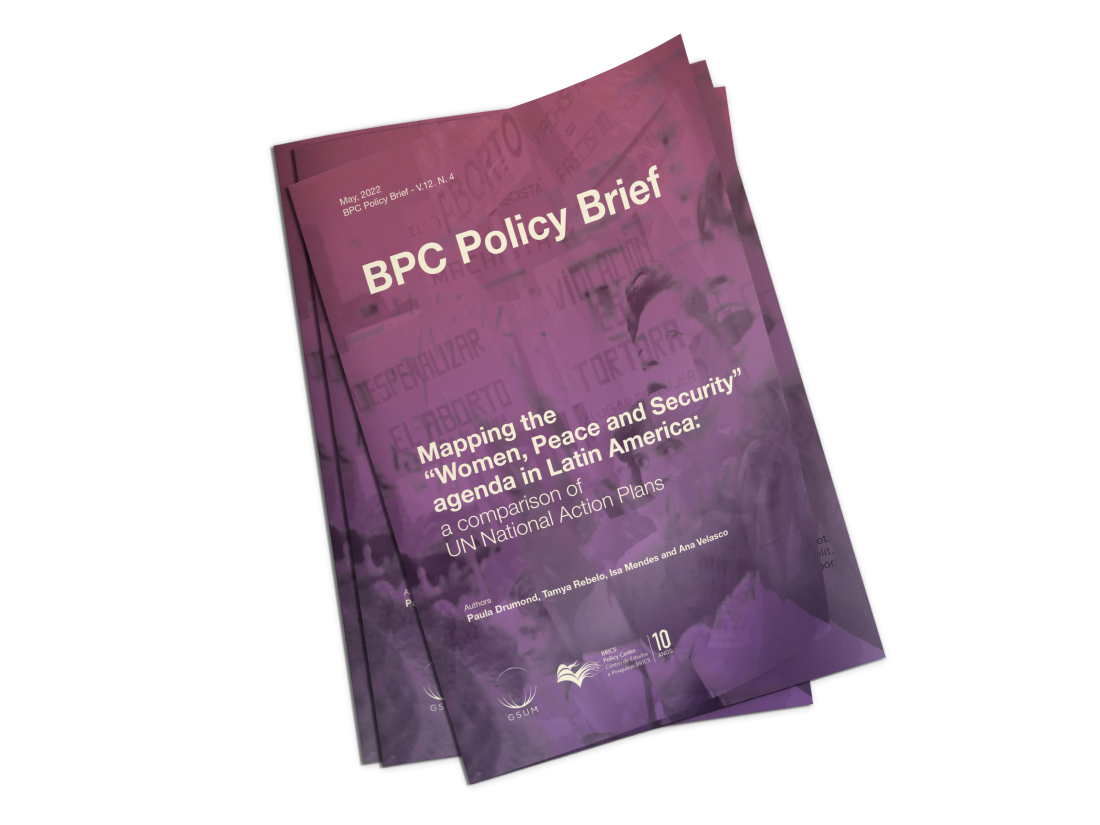
Mapping the “Women, Peace and Security” agenda in Latin America: a comparison of the UN’s National Action Plans
Adopted on October 31, 2000 by the United Nations Security Council (UNSC), Resolution 1325 has since then been one of the main references for the development, strengthening, and expansion of policies aimed at promoting gender equality, giving rise to the so-called Women Peace and Security (WPS) agenda. This Policy Brief aims to map and systematize the diffusion of the WPS agenda in Latin America. This analysis aims to reflect on the contours of the agenda in the region and deepen the understanding of how Latin American countries engage with this global normative framework. Based on an analysis of the National Action Plans (NAPs) adopted so far by countries in the region (Chile, Argentina, Paraguay, Brazil, El Salvador, Guatemala and Mexico), the work reveals how the agenda is being adopted in these different contexts, seeking to identify existing convergences and particularities. The mapping and analysis of the NAPs are organized around three main aspects: (i) their elaboration process and the actors involved; (ii) the content, objectives, and measures adopted; and (iii) implementation and monitoring strategies. The goal is to offer a general diagnosis of the national engagements with the agenda, summarizing the main advances, limitations, and recommendations to promote its implementation in the region.

